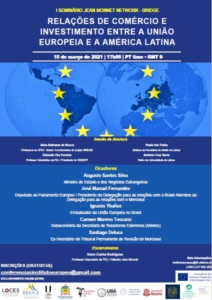The latest issue of the „Praxis des Internationalen Privat- und Verfahrensrechts (IPRax)“ features the following articles:
H.-P. Mansel/K. Thorn/R. Wagner: European Conflict of Law 2020: EU in crisis mode!
This article provides an overview of developments in Brussels in the field of judicial cooperation in civil and commercial matters from December 2019 until December 2020. It provides an overview of newly adopted legal instruments and summarizes current projects that are presently making their way through the EU legislative process. It also refers to the laws enacted at the national level in Germany as a result of new European instruments. Furthermore, the authors look at areas of law where the EU has made use of its external competence. They discuss both important decisions and pending cases before the CJEU as well as important decisions from German courts pertaining to the subject matter of the article. In addition, the article also looks at current projects and the latest developments at the Hague Conference of Private International Law.
C. Kranz: International private law aspects of taking security over membership rights in international financing transactions
In international financing transactions, pledges of membership rights play an important role. The private international law question, pursuant to which law the pledge is determined in the case of companies with a cross-border connection, cannot be answered in a generalised manner, but confronts those applying the law with some differentiations, in particular where membership rights have been certified in share certificates. The following analysis undertakes the attempt to clarify the key aspects from the perspective of German international private law.
F. Eichel: Choice of Court Agreements and Rules of Interpretation in the Context of Tort or Anti-trust Claims
In its rulings CDC (C-352/13) and Apple Sales (C-595/17) the ECJ gave a boost to the discussion on the range of choice of court agreements vis-à-vis antitrust claims. The article discusses a decision of the OLG München (Higher Regional Court of Munich, Germany) which has decided on this topic. In spite of a choice of court agreement pointing to Irish courts for “all suits to enforce this contract” (translation), the OLG München has held itself competent for antitrust claims, as – according to the reasons given – no interpretation of the contract was necessary. In the opinion of the author, this decision will no longer be relevant in Germany because it is not consistent with the decision Apple Sales, which has been rendered almost a year later. However, the reasons given by the OLG München are of particular interest, as it has made reference to the ECJ’s decision Brogsitter (C-548/12). Brogsitter is a decision on the range of the contractual jurisdiction of Art. 7 No. 1 Brussels Ia Regulation/Art. 5 No. 1 Lugano Convention 2007 vis-à-vis claims in tort. The present article has taken this as a reason to examine if the Brogsitter ruling can be understood as a “rule of interpretation” which comes into play once the intention of the parties of a choice of court agreement remains unclear. The article argues that in general the interpretation of choice of court agreements is subject to the lex causae of the main contract. However, with regard to torts and antitrust claims there are rules of interpretation arising from Art. 25 Brussels Ia Regulation itself. They are effective throughout the EU and are not influenced by the peculiarities of the national substantive law of the member states.
A. Kronenberg: Yet again: Negative consequences of the discrepancy between forum and ius in direct lawsuits after traffic accidents abroad
The Higher Regional Court (OLG) Saarbrücken had to decide upon appeal by a German-based limited liability company (GmbH) against a French motor vehicle liability insurer on various questions of French indemnity law and its interaction with German procedural law. The case once again highlights both well-known and less prominent disadvantages of the discrepancy between international jurisdiction and applicable law in actions which accident victims can bring directly against the insurer of the foreign party responsible for the accident at their place of residence.
M. Andrae: Once Again: On Jurisdiction when the Child’s Usual Residence Changes to Another Contracting Member State of the Hague Convention 1996
The discussed decision deals with the jurisdiction for a decision when it comes to a parent’s right of access. If at the time of the decision of the court of appeal the child has their habitual residence in a contracting state of the Hague Convention 1996 for the Protection of Children that is not a member state of the European Union, the Convention shall apply. For the solution it cannot be left open at which date the change of habitual residence occurred. If the change took place before the family court made the decision on the matter, the court of appeal must overturn this due to a lack of jurisdiction. This is done afterwards, the court of appeal lacks international jurisdiction to make a decision on the matter. The decision of the family court that has become effective remains in force in accordance with Art. 14 (1) Hague Convention 1996 until an amended decision by the authorities of the new habitual state of residence is made.
D. Stefer: Third-Party Effects of Assignment of Claims – Not a Case for Rome I
While an assignment of claims primarily involves the assignor, the assignee and the debtor of the assigned claim, it may nevertheless concern third parties that, though not directly involved in the transfer of the claim itself, may still be subjected to its effects. Such third parties can be creditors of the assignor, a liquidator or another potential assignee of the same claim. From a conflict of laws perspective, it is of particular relevance to determine which law applies to these thirdparty effects, since the outcome may differ depending on the jurisdiction. For instance, in case of multiple assignments of the same claim, German law gives priority to the assignment that was first validly concluded. Contrary to that, under Italian or English law priority will be given to that assignee who first notifies the debtor of the assignment. Yet, Article 14 of the Rome I Regulation does not contain an explicit rule governing the law applicable to third-party effects of an assignment. It is for that reason that the issue has been subject to constant debates. In particular, it was controversial to what extent the Rome I Regulation applied at all to the issue of third-party effects.
In BNP Paribas ./. Teambank AG, the Court of Justice recently held that no direct or implicit rule in that respect could be inferred from the Regulation. In the Court’s view, it was a deliberate choice of the EU legislature not to include rules governing the third-party effects of assignments of claims into the Regulation. Consequently, de lege lata the issue is subject to the national rules of private international law. Hence, under the rules of German private international law, the law applicable to the third-party effects of an assignment is the law that applies to the assigned claim.
F. Rieländer: The displacement of the applicable law on divorce by the law of the forum under Article 10 Rome III Regulation
In its judgment (C-249/19) the ECJ provided clarification on the interpretation of Article 10 of Regulation No 1259/2010 in a twofold respect. Firstly, Article 10 of Regulation No 1259/2010 does not lead to the application of the law of the forum if the applicable foreign law permits divorce, but subjects it to more stringent conditions than the law of the forum. Since Article 10 of Regulation No 1259/2010 applies only in situations in which the lex causae does not foresee divorce under any form, it is immaterial whether in the specific case the individual marriage can already be divorced or can still be divorced according to the applicable foreign law. Secondly, the ECJ held that the court seised must examine and establish the existence of the substantive conditions for a mandatory prior legal separation of the couple under the applicable foreign law, but is not obliged to order a legal separation. Unfortunately, the ECJ missed the opportunity to give a clear guidance on distinguishing substantive conditions foreseen by the applicable law from procedural questions falling within the law of the forum. Apart from this, it remains uncertain whether recourse to the law of the forum according to Article 10 of Regulation No 1259/2010 is possible if the lex causae knows the institution of divorce as such but does not make it available for the concrete type of marriage, be it a same-sex marriage or a polygamous marriage.
M. Scherer/O. Jensen: The Law Governing the Arbitration Agreement: A Comparative Analysis of the United Kingdom Supreme Court’s Decision in Enka v Chubb
On 9 October 2020 the Supreme Court of the United Kingdom rendered its much-anticipated decision in Enka Insaat Ve Sanayi A.S. v OOO Insurance Company Chubb (Enka v Chubb). In an extensive judgment, the Supreme Court engaged in a detailed review of the different approaches to determining the law applicable to the arbitration agreement and set out the relevant test under English law. The present case note analyses the judgment, explains why the majority’s decision is well-reasoned but its conclusion not inevitable and provides a comparative analysis of the English approach. The result: the age-old question of which law governs the arbitration agreement (and why) has not lost in complexity and continues to engage courts and scholars around the world.
D. Otto: In-/validity of unconscionable arbitration clauses
Impecunious parties occasionally are an issue in international arbitration. The Canadian Supreme Court had to decide a case involving a – nominally self-employed – driver of Uber, who commenced a class action in a Canadian court to have Uber drivers declared as employees and to challenge violations of Canadian employment laws. His standard-term service agreement with Uber provided for the application of Dutch law and for mediation and arbitration in the Netherlands, which would have required the driver to advance mediation and arbitration fees in an amount of over 70 % of his total annual income from Uber. Uber requested the court to stay proceedings in favour of arbitration in the Netherlands. The Supreme Court held that the arbitration clause was unconscionable and void. The court opined that in general parties should adhere to agreed arbitration clauses. However, the court found that in this case the driver was not made aware of the high costs of arbitration in the Netherlands, that Uber had no legitimate interest to have such disputes decided in far away countries and that the unusual high costs of such proceedings (amounting to over 70 % of the drivers total annual income) effectively made it impossible for him to enforce his rights before the foreign arbitration tribunal. The court dodged the other issue (affirmed by the lower court) whether a dispute involving alleged violation of Ontario’s Employee Standards Act was arbitrable at all.
V. Bumbaca: Remarks on the judgment of the US Supreme Court “Monasky v. Taglieri”
The decision of the US Supreme Court in Monasky v. Taglieri confirms that the determination of the newborn/infant’s habitual residence should focus on the intention and habitual residence of his/her parents or caregiver – the analytical approach is parent-centered. The US Supreme Court ruling, in affirming the decision of the Sixth Circuit Court of Appeals, also clarifies that the determination of the habitual residence of the adolescent/older child should focus on his/her own acclimatization – the analytical approach is child-centered. According to the Supreme Court, the determination of the habitual residence of the child found to be within a transnational family conflict, such as that contemplating an international abduction or an international marital dispute concerning, inter alia, parental authority, must take into account the specific circumstances and facts of each individual case – fact-intensive determination. Based on the practice of other States and of the CJEU, this judgment considers that a predetermined formula applied to the analysis of the child’s habitual residence cannot be deemed to be in conformity with the objectives of the 1980 Hague Convention (applicable to the United States and Italy, both of which are involved in this case) – in particular, by virtue of the fact-based approach followed by this notion, unlike other connecting factors such as domicile and nationality. Regrettably, in affirming the decision the Supreme Court upheld the reasoning of the Court of Appeal as a whole. Thus, it set aside two elements which were not considered in depth by the Court and which in the author’s opinion it should have retained, regardless of the child’s age and given the child’s development within a potentially disruptive family context: The principle of the best interests of the child and the degree of instability attributed to the child’s physical presence before the wrongful removal.
E. Jayme: Canada: Export restriction for cultural property of national importance: The Federal Court of Appeal – Attorney General of Canada and Heffel Gallery Limited, 2019 FCA 82 (April 16, 2019) – restores the decision of the Canadian Cultural Export Review Board which rejected the export permit for a painting by the French artist Gustave Caillebotte
Canada: The case decided by the Federal Court of Appeal (Attorney General of Canada, Appellant, and Heffel Gallery Limited, Respondent, and 10 Canadian cultural institutions as interveners, 2019 FCA 82 [April 16, 2019]) involved the following facts: A Toronto based auction house sold a painting by the French impressionist Gustave Caillebotte (“Iris bleus”) to a commercial gallery based in London, and applied to the Department of Canadian Heritage for a cultural export permit, which was refused following the recommendation of an expert examiner. Then, the auction house requested a review of that decision before the Canadian Cultural Export Review Board which rejected the export permit application. Then, the auction house asked for a judicial review of that decision: The Federal Court held that the Board’s decision was unreasonable and remitted the case to another panel for reconsideration. This decision of the Federal Court was appealed by the Attorney General of Canada. Thus, the case passed to the Canadian Federal Court of Appeal which allowed the appeal, dismissed the application for judicial review and restored the decision of the Board, i.e. the refusal to issue an export permit for the painting, in the words of the court: “I am of the view that the Federal Court erred in failing to properly apply the standard of reasonableness. The Board’s interpretation of its home statute was entitled to deference, and the Federal Court’s failure to defer to the Board’s decision was a function of a disguised correctness review.”
The case involves important questions of international commercial law regarding art objects, questions which arise in situations where art objects have a close connection to the national identity of a State. The Canadian decision shows the importance of experts for the decision of whether a work of art is part of the national cultural heritage. The Canadian cultural tradition is based on English and French roots. In addition, the Canadian impressionism has been widely influenced by the development of French art. Thus, it is convincing that the painting by Caillebotte which had been owned and held by a private Canadian collector for 60 years forms part of the Canadian cultural heritage, even if the painter never visited Canada. In addition, the case is interesting for the general question, who is entitled to decide that question: art experts, other boards or judges. The court applied the standards of reasonableness and deference to the opinion of the art experts.
A. Kampf: International Insolvency Law of Liechtenstein
Due to various crises, the International Insolvency Law increasingly comes into the focus of currently discussed juridical issues. With reference to this fact, the essay gives an overview of the corresponding legal situation in Liechtenstein, considering that the EU regulation 2015/848 on insolvency proceedings is not applicable. In particular, the author concerns himself with the complex of recognition and the insofar existing necessity of reciprocity. In comparison to the regulation mentioned above, the author comes to identical or at least similar results. He votes for necessity to be abolished and argues for recognition not only of movable assets being located in Liechtenstein.




 The
The 
